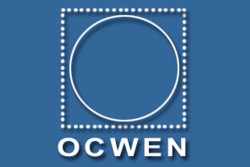Top Class Actions’s website and social media posts use affiliate links. If you make a purchase using such links, we may receive a commission, but it will not result in any additional charges to you. Please review our Affiliate Link Disclosure for more information.

U.S. District Judge Amos Mazzant rejected Ocwen’s motion to end the whistleblower lawsuit, ruling that alleged false statements made by Ocwen could constitute a violation of the U.S. False Claims Act (FCA).
According to the whistleblower lawsuit relators, defendants OFC, Ocwen Loan Servicing LLC, and Homeward Residential Inc. conspired to commit financial fraud against the government by misleading the government about their compliance with the HAMP program.
The HAMP program assists homeowners on the verge of foreclosure by lowering interest rates and payments, extending terms and forgiving principal.
But in this case, it allegedly led to homeowners losing their properties while the defendants took almost $2 billion in incentive payments from the government.
The whistleblowers, one of whom was employed at a law firm that helped homeowners with loan modifications, also sought summary judgment that the defendants had fraudulently submitted false certifications and other information to the government from 2009 until 2014.
However, Judge Mazzant denied the request, stating the whistleblower lawsuit relators failed to convince him their allegations were undisputed.
“After a careful review of the record and the arguments presented, the court is not convinced that relators have met their burden demonstrating that there is no material issue of fact entitling it to judgment as a matter of law,” the judge wrote.
In a separate order, Judge Mazzant also denied a summary judgment motion from Ocwen, in which the company contended the whistleblower claims did not fall under the False Claims Acts since there were no allegations brought that the companies committed financial fraud by submitting a false order for payment
But the judge disagreed, stating, “the court disagrees and holds that relators do allege a claim for payment.”
The Ocwen Whistleblower Lawsuit is the United States of America, et al., v. Ocwen Loan Servicing LLC, et al., Case No. 4:12-cv-00543, in the U.S. District Court for the Eastern District of Texas.
Fraud Against the Government
Fraud against the government is not just a matter of the criminal law. The government allows private citizens to bring actions of financial fraud, health care fraud or other fraudulent claims on behalf of the government. These are call qui tam actions.
In 1986, Congress amended the False Claims Act to encourage the use of qui tam actions in which citizens are authorized to bring whistleblower lawsuits on behalf of the United States alleging fraud against the government.
The private citizen plaintiff in such a whistleblower lawsuit is often referred to as the “relator.” By doing this, Congress increased the amount by which a relator would share in any money recovered.
Filing a Whistleblower Lawsuit
In a whistleblower lawsuit, an individual with knowledge of an organization’s activities provides information about fraud, corruption or other illegal activity. Whistleblowers are often employees, former employees and others who have access to company documents and internal information.
In order to be eligible to recover money under the False Claims Act, you must file a qui tam or whistleblower lawsuit. It is not enough to merely inform the government about the FCA violation.
Whether you have evidence of fraud against the government or corruption at a private company, an experienced whistleblower attorney can investigate your claim and advise you on your legal options.
In general, whistleblower and qui tam lawsuits are filed individually by each plaintiff and are not class actions. Whistleblowers can only join this investigation if they are reporting fraud against the government, meaning that the government must be the victim, and that the alleged fraud should be a substantial loss of money.
Do YOU have a legal claim? Fill out the form on this page now for a free, immediate, and confidential case evaluation. The attorneys who work with Top Class Actions will contact you if you qualify to let you know if an individual qui tam lawsuit or whistleblower class action lawsuit is best for you. Hurry — statutes of limitations may apply.
ATTORNEY ADVERTISING
Top Class Actions is a Proud Member of the American Bar Association
LEGAL INFORMATION IS NOT LEGAL ADVICE
Top Class Actions Legal Statement
©2008 – 2024 Top Class Actions® LLC
Various Trademarks held by their respective owners
This website is not intended for viewing or usage by European Union citizens.
Get Help – It’s Free
Join a Free Whistleblower, Qui Tam Lawsuit Investigation
If you believe that you have witnessed fraud committed against the government, you may have a legal claim. Whistleblowers can only join this investigation if they are reporting fraud against the government, meaning that the government must be the victim, and that the alleged fraud should be a substantial loss of money.
See if you qualify to pursue compensation and join a whistleblower lawsuit investigation by submitting your information for a free case evaluation.
An attorney will contact you if you qualify to discuss the details of your potential case.
Please Note: If you want to participate in this investigation, it is imperative that you reply to the law firm if they call or email you. Failing to do so may result in you not getting signed up as a client, if you qualify, or getting you dropped as a client.
Oops! We could not locate your form.












